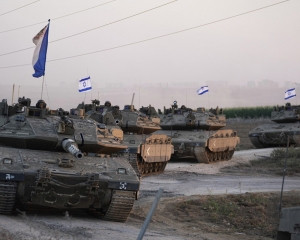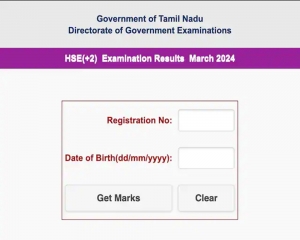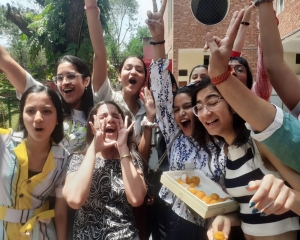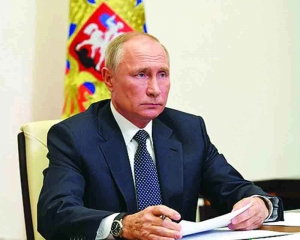Christianity, a major religion of the world, stemmed from the life, teachings, and death of Jesus of Nazareth, the Christ, or the Anointed One of God in the 1st century common era. Constantine made Christianity the official religion of Rome. On February 27, 380, in Thessaloniki, the Eastern Roman Emperor Theodosius I (347 - 395) signed a decree in the presence of the Western Roman Emperor Valentinian-II that made Christianity the religion of the state and punished the practice of pagan rituals. As the capital of the empire, Rome was the natural centre for the growing church which put a name to every bishop in an unbroken line back to the 1st century of the Christian era. St Peter was the first pope.
The Catholic Church weakened by the late middle ages by corruption, political struggles, and humanist ideas. Many Catholics were dismayed by extreme worldliness and immorality in the Church where the sale of indulgences was rampant and the practice of simony huge. Simony means the buying or selling of spiritual or sacred things such as ecclesiastical offices, pardons, or consecrated objects. Much later, the Protestant Reformation began in Wittenberg, Germany, on October 31, 1517, when Martin Luther, a teacher and a monk, published a document called ‘Disputation on the Power of Indulgences, or 95 Theses’- a series of 95 ideas about Christianity that he invited people to debate with him.
The Catholics and Protestants worship the same God, but the principles of their faith are different. Five hundred years after the Reformation, there are still painful divisions between Protestants and Catholics.
In Germany, the country of the Reformation, a deep animosity divided Catholic and Protestant Christians up until a few decades ago. This division had deepened over the centuries through religious conflicts and wars.y and the church
Reformation began 500 years ago as Martin Luther tried to reform the Catholic Church. His attempt led to a schism in the church. On October 31, 1517, the publication of his Ninety-Five Theses, which outlined various abusive practices of the church, is considered the founding event that led to this division in Germany and the creation of the Evangelical Church. In the past, Protestant churches had celebrated major Reformation anniversaries by worshiping Martin Luther as a hero; but in recent years that approach changed. The Evangelical Church in Germany sought to turn the celebrations of ‘500 Years of Reformation’ into a common celebration of Christ with the Catholic Church.
Through various events, both sides paid tribute to Martin Luther while emphasizing their will to overcome divisions. On March 11, 2017, a central reconciliation service was held in the city of Hildesheim to jointly mark 500 years since the Reformation.
Fortunately, the goal in recent years has been to reach better understanding and find common ground between the two churches. All the same, a new united church is far from being realised. To describe their relationship, the expression "reconciled diversity" is used by both sides. The basic differences between the two Christian communities:
Interpretation of the Bible
Catholicism and Protestant Luther made clear that the Bible is the ‘Sola Skriptura, God's only book, in which He provided His revelations to the people, which allows them to enter in communion with Him. Catholics, on the other hand, do not base their beliefs on the Bible alone. Along with the Holy Scripture, they are additionally bound by the traditions of the Roman Catholic Church. Catholics and Protestants have a different view on the nature of the church. ‘Catholic’ means‘all-embracing’. The Catholic Church sees itself as the only true church worldwide, under the leadership of the pope.In contrast, the Protestant Churches which have emerged from Reformation, also called ‘Evangelical’ meaning ‘according to the Gospel’ do not make up one united Church. There are rather several tens of thousands of different denominations around the world. Officially, all of these many churches are considered equal.
Protestants do not care for the papal primacy. This dogma contradicts statements in the Bible. Catholics consider the pope as the successor of the Apostle Peter, the first head of their Church, who was appointed by Jesus. The papal office justifies this by an allegedly unbroken chain of consecrations, ranging from the first century to the present.
This continuous chain, known as the apostolic succession, is significant for different spiritual offices in the Catholic Church. With the Sacrament of Holy Orders, bishops, priests and deacons receive a lifelong seal of God giving them sacramental authority over Catholic folks. But this consecration is given only to men. Protestants do not consecrate specific persons into office, but rather accept the principle that priesthood can be transferred to every believer including women.
The Catholics' spiritual views are reflected in the Eucharist or Holy Communion, a rite commemorating the Last Supper of Jesus with his disciples before his crucifixion. Once consecrated by a priest in the name of Jesus, bread and wine become the body and blood of Christ. Non-Catholics may not participate in Communion. In the Protest Church, every baptised person is invited to share and is allowed to lead the Lord's Supper. This approach is not accepted by Catholics.
Additionally, Eucharist has a different meaning for Catholics and Protestants. The bread, known as the Host, embodies Jesus and can, therefore, be prayed to. For Protestants, the ritual only serves to commemorate Jesus' death and resurrection.
In the Roman Catholic Church, there are seven solemn rites, called sacraments: baptism, confirmation, the Eucharist, matrimony, penance, holy orders and extreme unction, all this believed to have been instituted by Jesus. Most Protestant churches only practice two of these sacraments: baptism and the Lord's Supper. The Roman Catholic Church reveres Mary, the mother of Jesus, as ‘Queen of Heaven’. There are few biblical references to support these dogmas. These are rejected by the Protestants though they believe Mary was the mother of Jesus.
The Catholic Church also practises the veneration of saints through canonization. There are now over 4,000 saints. This veneration is also vehemently opposed by the Protestant Church as unbiblical. In the Catholic Church, celibacy is obligatory for priests. The Protestant Church rejects this obligation for priests. Martin Luther demanded its abolition in 1520. The former monk married a former nun Katharina von Bora only to please his father, rile the pope, cause the angels to laugh, and the devils to weep.
Interestingly today, most of the leading industrialised nations including USA, UK, Germany and France are protestants. The three Western Europe catholic countries Italy, Spain and Portugal are very poor economies with huge debt burdens.
Though 50% Christians of the world are Catholics, the protestant communities rule as masters. Only the Pope makes money from archaic traditional practices. He has long ceased to be the sole master of the Christian world. But Vatican City is, of course, a great tourist destination today for Christians.

























